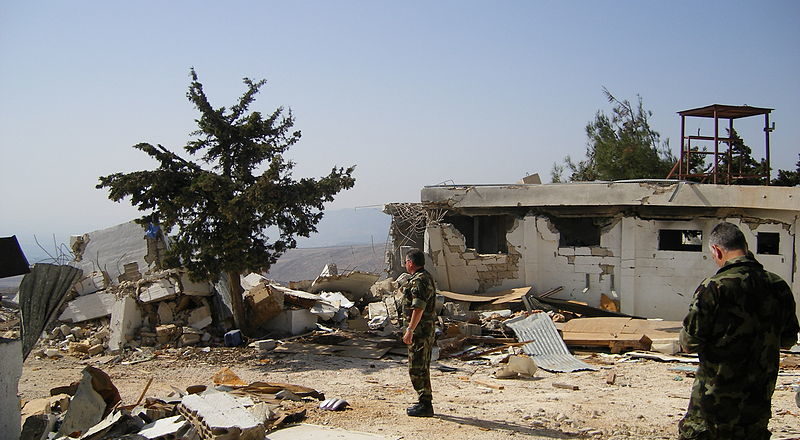A nation must think before it acts.
Ten years have passed since Israel and Hezbollah last confronted one another in an all-out war on the battlefield. This war—which to the international community is known as the 2006 Lebanon War; to the Lebanese and their brethren as the July War; and to the Israelis as the Second Lebanon War—has legacies as discrete as it is names. Was it that this war “shattered the myth of the invincibility of the Israeli army”—a narrative that was begun by the Lebanese-Shi‘i terrorist group itself in the aftermath of the conflict and that has been touted ever since, most stridently as circumstance would have it by the Iranians? Or, was it that this war finally enabled Israel to establish a decade-long deterrence against a dangerous adversary operating inside its northern neighbor?
Let’s consider another legacy, one which has the benefit of hindsight without reading into the past too much of today’s regional dynamics. The 2006 Lebanon War was the event which marked the beginning of Hezbollah’s slow erosion of its own legitimacy and therefore its status in the Arab world. By carrying out a deadly attack on Israeli troops and abducting of two its soldiers, Ehud Goldwasser and Eldad Regev, Hezbollah provoked an unnecessary 34-day war with Israel that resulted in the destruction of large swaths of Lebanon and claimed more than 1,000 Lebanese lives. To be sure, Israel was pummeled by hundreds of missiles, and 165 Israeli soldiers and civilians lost their lives, but the asymmetry is quite clear. Hezbollah needlessly gambled with the land and lives of the country in which it operated in order a) to prove that it was the only so-called credible force able to stand up to Israel, and b) to further the agenda of its patron, Iran, in its proxy war with Israel.
Saudi Arabia was the first to chastise Hezbollah’s “adventurism” by issuing a statement that categorized the group’s activities as being well outside of the resistance narrative and called into question its legitimacy to engage in activities of this nature apart from the Lebanese state:
Viewing with deep concern the bloody, painful events currently taking place in Palestine and Lebanon, the Kingdom would like to clearly announce that a difference should be drawn between legitimate resistance and rash adventures carried out by elements inside the state and those behind them without consultation with the legitimate authority in their state and without consultation or coordination with Arab countries, thus creating a gravely dangerous situation exposing all Arab countries and its achievements to destruction with those countries having no say.
The Egyptians, Jordanians, and several other Gulf monarchies soon echoed these sentiments, declaring Hezbollah’s activities as “unexpected, inappropriate and irresponsible acts” at an emergency Arab League summit meeting held in Cairo on July 15, 2006.
This article was originally published in the September issue of Al-Majalla, a popular monthly Arabic print magazine on current affairs that is distributed across the Arab world.
Continue reading, “What is the Legacy of the 2006 Lebanon War?”




